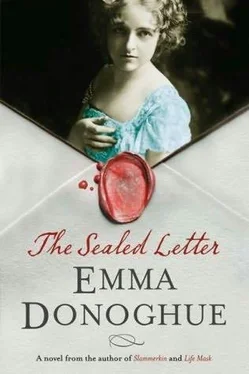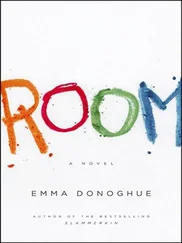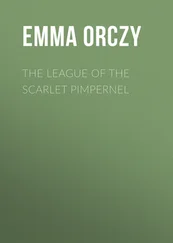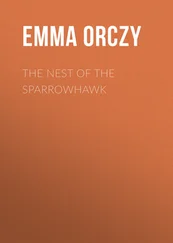The main office of the Victoria Press is at 9 Great Coram Street, five minutes' brisk walk from the house. (Evacuation of Atlanta Ends Four Month Siege, reads the newsboy's sign, and she considers stopping to recommend a hyphen between four and month.)
In the typos' room, she pauses to congratulate Gladys Jennings on her recovery from smallpox; the girl's still purple-tinged and marked with scabs that Fido pretends not to see. Then she stops by the desk of Flora Parsons. "This will take half the day to correct," she remarks, handing back the long slip she's marked up in red. "If you'd applied your mind the first time, as Miss Jennings always does-"
"Beg pardon, ma'am," mutters Flora Parsons, head down, still rapidly plucking sorts from the alphabetical cases.
"It's not a matter of my pardon," says Fido, exasperated. "I'm merely pointing out why Miss Jennings makes eighteen shillings to your ten. That's the very reason I pay by the piece rather than by the week: to put your earning power in your own hands."
"You're very good to us, ma'am."
Fido could hardly miss the sarcasm. This one's a hard case: a workhouse orphan with cream-coloured hair who's been here four years now and is as slapdash as ever. Engaged, already, to one of the junior clickers, Mr. Ned Dunstable, which Fido finds disheartening: young hands are more trainable than their elders, but most won't trouble to master a trade they expect to leave at any moment. "You underestimate yourself, Miss Parsons," she says now, on impulse.
That makes the blonde typo glance up.
"It's a marvel to me, for instance, that without any formal schooling, you've such a fine grasp of the language."
A shrug. "Down to all the copy I've set up, I dare say. What old Robert Owen would call the spread of education."
Fido stands closer to the desk. "What infuriates me-" She breaks off. "If you really applied your forces," she starts again, "you could be the quickest, most accurate typo here. Save some capital, go into your wedded life on terms at least approaching equality. In fact, I've never hired a married woman yet, but in your case I would consider-"
Flora Parsons interrupts with a peculiar half-smile. "Ned and I will do perfectly well, thank you, ma'am."
Without another word, Fido goes back to her office.
She still does her own correcting; it's hard to find the time. She'd be glad to find an educated lady to take it on-though she's not sure she could afford one, given that six of her apprentices become journeymen this year and will have to be paid half as much again.
Mr. Head comes in hangdog with the Printer's Journal. "You see here, Miss Faithfull, where the London Society of Compositors is debating a policy of making its members swear not to finish work set up by females?"
Fido winces. And to think she's had the impression the trade's hostility to her has been fading away, as the years prove that the Victoria Press is not going to depress wages…" Women, if you please, Mr. Head," she says, glancing through the article; "females smacks of the zoo. Do I refer to your sex as males, as if you were orangutans?"
He grins, but only briefly. "What if the society were to strike the press?"
Fido takes a long breath before she answers. "Have you received a direct order from your superiors?"
"No, no," he says, horrified. "They don't know I'm a clicker here."
It's as if she's running a gambling cellar or opium den. "Well, then, I suggest you put it out of your mind, Mr. Head. If that dark day comes, you'll be obliged to decide whether to let yourself be bullied out of a job that I think you've found both agreeable and profitable."
He nods unhappily. He makes no move towards the door. "Myself and Mr. Kettle were thinking, perhaps we could change names."
She blinks at him. "You would be known as Kettle, and he as Head?" (She doesn't like Kettle, as it happens; on occasion she's suspected something fishy about his figures, but she's never had proof.)
"No, no, we'd both assume false ones, aliases on paper, as it were. So that there'd be no record that it's we who supervise the girls."
She almost laughs at the atmosphere of skullduggery. "Very well, I'll pay my clickers under any nom de guerre of your choice. May I still address you as Mr. Head and Mr. Kettle, to save confusion?"
"Certainly, madam, it's just for the books," says Head, sheepish.
Don't fret, she tells herself when he's gone; she presses her fingers to her hot face. It won't come to a strike. And if it does, well, I've survived worse. Had Fido wanted a peaceful existence, she reminds herself, she could have stayed at home and helped her mother with the parish work.
With unnecessary violence she slits open some letters, including one from Matthew Arnold apologizing for the lateness of his review of a new translation of Marcus Aurelius. My dear Faithfull is how he addresses her, and she likes the style; in the world of letters, sex shouldn't matter. Emily Davies has forwarded a poem by Miss Rossetti; Fido finds it touching that these authors remain willing to write for the pittance the English Woman's Journal can offer them.
She spends the next half-hour proofreading an article for the enormous Annual Proceedings of the Social Science Association:
"Are Men Naturally Cleverer Than Women?"
Men are superior to women because they know more, but they have this knowledge because they have three times the opportunities of acquiring it.
She likes that line; it has a punch to it.
The boy's tapped three times before she looks up. "A Mrs. Coddleton and a Colonel Anderson, to pay their respects, ma'am."
"Codrington," a merry voice corrects him from behind the opaque glass of the door.
Taken aback, on her feet, Fido's all smiles. Helen, here!
"I badgered poor Anderson to bring me along, since my lord and master's still glued to his papers," Helen explains as she presses her cheek to Fido's in the Continental manner. She's in the tiniest of ivory bonnets today: it's a stray dove perched on her brilliant hair.
The officer's in mufti, a rather loud waistcoat: the family tartan? Fido wonders. "No badgering was required," he assures her.
"What fun, Fido, to glimpse you in character," cries Helen, tucking her arm through Fido's as they move through the workroom.
Fido flinches a little, because the typos will have heard the nickname-then tells herself they must know it already. "That makes it sound as if I'm acting a role."
Helen's mouth twists. "Oh, don't we each have several selves?"
And indeed, even as Fido launches into the usual spiel about setting up the press four years ago, "as a practical demonstration to the world of the capacities of women's eyes, fingers, and brains," she's listening to herself with a strange self-consciousness, noting how cool and professional she sounds.
Helen sniffs the air.
"Ink," Fido tells her. She shows off the Wharfedale flatbed press, ornamented with brass eagles, "Capable of a thousand impressions an hour. Oh, and this is Miss Bridget Mulcahy: my first employee and right-hand woman."
The pallid Irishwoman smiles and bows, her hands skimming like dragon-flies as she returns cleaned letters to their cases.
"Daughter of a Limerick printer, who took the unusual step of training her," Fido tells her visitors in a murmur. "After his death she saw my advertisement in a newspaper and headed straight for London."
"Isn't it an unhealthy occupation?" Anderson asks as they walk between the pew-like composing desks.
Fido's always glad when a visitor brings up this misconception. "Traditionally, but not necessarily. I remember the Printer's Journal claimed all my hands would sink under the strain! But you see, I make sure to provide good lighting, ventilation, breaks for lunch, and stools to sit on while they work."
Читать дальше












